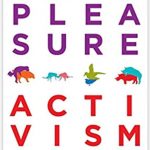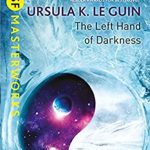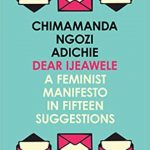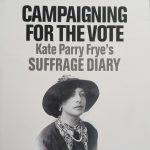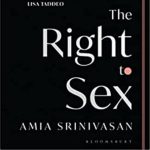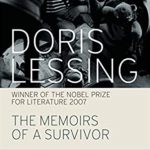
Feminist Book Fortnight is happening now! While traditionally a bookshop-led event, the team at Bristol Women’s Voice thought we’d take the opportunity to have a think about some of our own favourite feminist reads and share these with you. We would also LOVE to hear from you what YOUR favourite feminist books are.
‘Pleasure Activism’ by Adrienne Maree Brown
This is a collection of thought-provoking essays and interviews with diverse feminist thinkers exploring feminism, social justice and different layers of activism with pleasure at the heart of it through the lens of the black feminist tradition. I was invited to sit with questions such as ‘How can I be part of creating a new narrative as an activist and feminist?’ and ‘How can I stand in integrity with myself and solidarity with my sisters in the context of topics such as climate breakdown, sex work, porn, eroticism, pleasure, race, drugs and the complex politics of our time?’ I found this book to be one of the greatest addition of the last years to my personal library. Expect affirmation, inspiration, discomfort, laughter and expansion of your world view.
Chosen by: Dahlia, Community Organiser
‘The Left Hand of Darkness’ by Ursula Le Guin
In this science-fiction masterpiece, Le Guin deconstructs our gendered world, constructing in its place an alien planet called Gethen inhabited by a gender-fluid, ambisexual species. We follow a human envoy, sent to Gethen, in his journey confronting his own prejudice and misogyny as he navigates the non-binary world. The book is subtle and ahead of its time (written in 1969), uncovering the possibilities of a culture devoid of sexual discrimination, and exposing the limitations of humans who remain divided along gendered lines.
Chosen by: Eilidh, Community Hub Coordinator
‘Dear Ijeawele, or a Feminist Manifesto in Fifteen Suggestions: The Inspiring Guide to Raising a Feminist’ by Chimamanda Ngozi Adichie
This is a great, short, easy-to-read book. As a mother with a young daughter, it wisely suggested ways of raising a strong, independent woman, empowering me to encourage her to follow her desires, while also reflecting on my own principles. Discussing a wide range of issues from domestic duties such as cooking, to gendered baby clothes.
Chosen by: Helen, Community Organiser, Disabled Women Take Action
‘Campaigning for the Vote: Kate Parry Frye’s Suffrage Diary’, edited by Elizabeth Crawford
Books about the suffrage movement really get me excited, and ‘Campaigning for the Vote’ is extra special. We hear so much about the ‘obvious’ names from the suffrage movement that it was a real treat when feminist historian Elizabeth Crawford came across Kate’s long-forgotten archives in an attic. Kate was one of many foot soldiers in the movement: travelling around the UK, speaking at events, rallying fundraisers, and tirelessly working for the cause of votes for women for years. Her diaries also include lots of flyers and memorabilia that she collected. This is a lovely and fascinating insight into a suffrage campaigner’s life.
Chosen by: Jane, Communications Officer
‘The Right to Sex’ by Amia Srinivasan
Not necessarily my most enjoyed feminist read of the last year (which would be ‘Girl, Woman, Other’ by Bernardine Evaristo), but this book of essays had me thinking harder than others and succeeded in really challenging my beliefs. Amia Srinivasan is a professor of social and political theory at Oxford University and, through this lens, she unpicks pornography, incel, racism and the concept of intersectionality, and she questions whether our choices can ever be independent of political and societal construction. I found myself vigorously nodding and angrily disagreeing in almost equal measure, equating to a growth-promoting read.
Chosen by: Katy, Director
‘Memoirs of a Survivor’ by Doris Lessing
There is the dreamlike quality of the narrator’s experiences: isolated, vulnerable, with a vivid internal world. When she takes in a young girl she connects with the directness of childhood, youth, and young womanhood. It’s a conduit to the outside and the dynamic amorality of feral youth in a disintegrating society shakes her. The story’s thin internal external boundaries have had a new resonance recently. Is this a grim picture of what might be if Bristol’s lockdown had continued into the cost of living crisis? Maybe.
Chosen by: Troy, Volunteer & Training Coordinator

